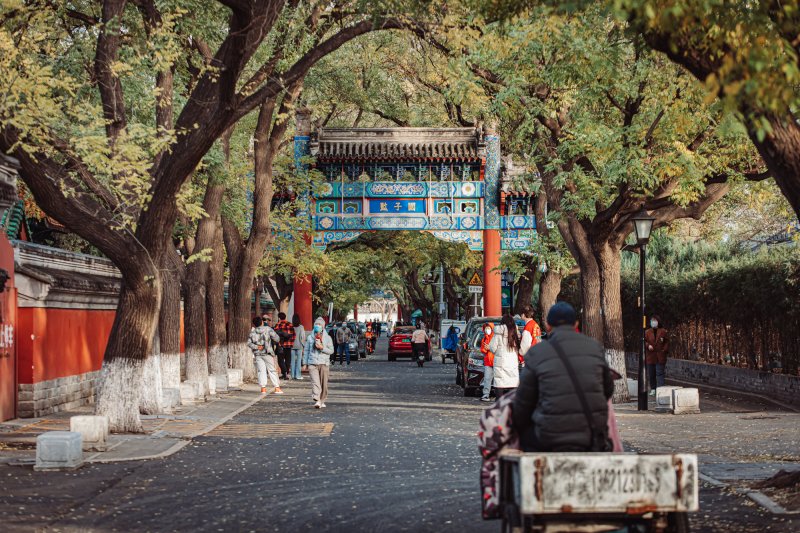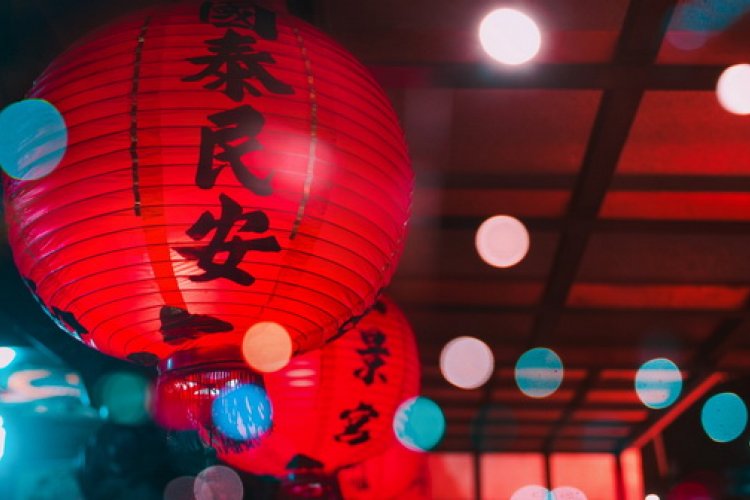Mandarin Monday: This Isn't How You Read That?!
Mandarin Monday is a regular series where we help you improve your Chinese by detailing fun and practical phrases and characters.
Beijing, as the capital of China, boasts a rich history and a vast array of places with historic names. Many of these names have unique pronunciations that differ from what might be expected based on standard Mandarin pronunciation. Some of these peculiar pronunciations have roots in Beijing's history and local dialect, while others reflect cultural and linguistic developments over centuries. In this article, we will explore the pronunciations of several famous places in Beijing: Dashilanr, Majiapu/Shilipu, and The Imperial College (Guozijian).
Dashilanr (大栅栏 dàshílànr)

One of the most interesting place names in Beijing is Dashilanr, a famous commercial street located near the Qianmen area. In standard Mandarin, the character "栅栏" is pronounced as "zhàlán," which refers to a fence or railing. However, in the case of Dashilanr, the pronunciation is "shílánr." This unusual pronunciation has sparked various theories regarding its origins.
A widely accepted explanation comes from Professor Zhou Yimin from Beijing Normal University's Department of Chinese Language and Literature. He suggests that "Dashilanr" is a remnant of an ancient Beijing pronunciation known as "Dashi lan'er" (大拾烂儿), which has been preserved over time as part of the city's linguistic heritage.
Another theory suggests that Dazhalan was originally a narrow alley near Xichang Street, in the Xidan area. To distinguish the two places, the pronunciation "Dashi lan'er" became more commonly used for the area near Qianmen, while the pronunciation of the street name was kept as "Dazhalan." This distinction between the two names may have helped avoid confusion for locals.
Majiapu and Shilipu (马家堡 mǎjiāpù, 十里堡 shílǐpù)

Both Majiapu and Shilipu are streets in Beijing, but the pronunciation of the word "堡" (bǎo) in these names can be confusing due to the fact that this character has multiple pronunciations in Chinese. When pronounced as "bǎo," it typically refers to a military fortress, such as "bǎolěi 堡垒" (fortress) or "diāobǎo 碉堡" (pillbox), which conveys the idea of a defensive structure. This pronunciation is often used for military-related terms.
However, when "堡" is pronounced as "pù," it refers to a place that was historically used as a rest stop or station for travelers, merchants, or couriers. This usage is associated with ancient transportation networks, where "pù" stations were key resting points along long-distance routes. Over time, some place names with this character retained the pronunciation "pù," even though the character itself is still written as "堡."
In Beijing, places like Majiapu and Shilipu are named using the second pronunciation, "pù." These areas historically served as important transport hubs or rest stops along major roads, and the pronunciation has remained as part of the region's legacy. The widespread use of the "pù" pronunciation can be found in northern China, particularly in areas related to ancient transportation routes.
The Imperial College or Guozijian (国子监 Guózǐjiàn)

Guozijian is another significant historical place in Beijing. It was the highest educational institution in imperial China during the Yuan, Ming, and Qing dynasties. The term "监" (jiàn) typically refers to an official institution or government office, and its pronunciation is distinct from its other meanings, such as in the word "监狱 jiānyù" (prison), where it is pronounced "jiān" with a first tone.
The unique pronunciation of "监 jiàn" in Guozijian is explained by the fact that it refers to an official government institution. In ancient China, the names of government offices, especially those of high status, were pronounced with the fourth tone (jiàn) to indicate their official status. If pronounced with the first tone (jiān), it could be confused with terms related to prisons or oversight institutions, which is why the pronunciation "jiàn" is used for Guozijian to avoid this confusion.
The peculiar pronunciations of these place names in Beijing reflect the city's rich historical and linguistic evolution. These unique pronunciations are often a result of ancient customs, dialects, and distinctions made to avoid confusion. By understanding these historical and cultural influences, we can gain a deeper appreciation of the intricate linguistic landscape of Beijing. They are not just geographical markers; they're also reminders of the city's long and storied past.
READ: Mandarin Monday: Essential Vocabulary to Welcome Spring
Images: Uni You, Canva







